Keyword: Turkey
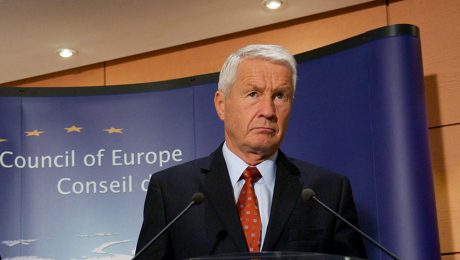
Council of Europe: Turkey must separate coup plotters from Gülen employees
“We are stressing to the Turks that they have to present clear evidence, be able to separate those who were clearly behind the coup and those who have been in some way or another connected to or working for this so-called Gülen network,” Jagland, Secretary General of the Council of Europe, told Reuters.

Erdoğan confesses anti-Gülen witch-hunt has gone off track
Despite Gülen and the movement having denied the accusation and calling for an international investigation, Erdoğan — calling the coup attempt “a gift from God” — and the government launched a widespread purge aimed at cleansing sympathizers of the movement from within state institutions, dehumanizing its popular figures and putting them in custody.
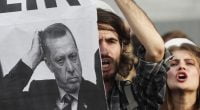
Why Turkey wants to silence its academics
Where will Turkey go from here? I spend many sleepless nights, feeling just as I did when I first read George Orwell’s “1984.” Just like Orwell’s dystopian society – a society with oppressive controls – the current Turkish state and the government are, it seems, out to silence all people capable of producing new and independent thinking and research in Turkey. As most of such minds are concentrated in Turkish academia, they will all be destroyed unless they turn into obedient and pious consumers.

Obama is the real turkey in this scenario
Erdogan also made a statement, calling the president of the United States “Barack,” before launching into one of his usual self-serving rants. Typical of a violent Islamist appropriating the moral high ground, the Turkish president agreed that fighting terrorism is of utmost importance. But the “terrorists” to whom he mainly referred were Gulen and the Kurds.

Why on earth does a Hizmet follower flee Turkey?
What follows is a translation of a recently-received one in which a family, sympathizer of the Gulen Movement, a.k.a. Hizmet, talk over their experience in leaving the country. Most of the credit go to the Samanyolu Haber for publishing the story that sheds light on personal stories in what many call Turkish brain drain, on September 6.

Turkey’s Brain Drain and the Disappearing Academic Freedom
Hasan was the luckiest because he was not in Turkey during the coup. He was studying abroad on July 15th and learned the coup through the Internet. He was supposed to go back to Turkey but he decided not to do so because of the news on the immense purging in mostly the government and some private institutions. Few days after the coup he learned that he was dismissed from his position at a state university.

Istanbul police display hundreds of books among evidence of ‘terror’
Police seized Gülen’s 1,500 books; 24 CDs featuring Gülen’s speeches; TL 435,200 ($148,000) along with $99,200 and 700 euros; several laptops; two guns and some digital data, during operations targeting the alleged terrorist network of the movement.
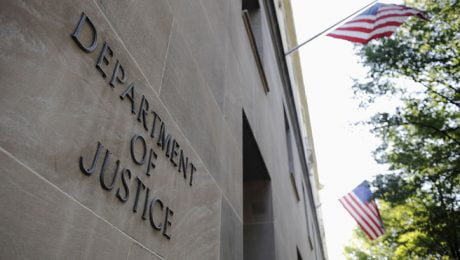
The Process Behind Turkey’s Proposed Extradition of Fethullah Gülen
By publicly campaigning for Gülen’s immediate extradition—before a formal request had been submitted—Turkish officials reinforced the idea that the United States is somehow protecting Gülen or resisting the extradition process. That is not true. There will be critics of any eventual decision, just as there are critics of the delay in reaching a decision. Whatever the result, both governments should communicate the decision with consideration for the long-term relationship and should operate on the assumption that the other is acting in good faith.
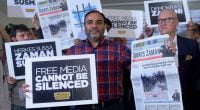
Tables Have Turned for Some Media in Turkish Crackdown
Mr. Kenes says he should have been more outspoken in defense of fellow journalists when the government started targeting its critics more than a decade ago. “Frankly, we did not realize Mr. Erdogan’s real intentions,” said Mr. Kenes, who was convicted last year of insulting the president on Twitter and given a 21-month suspended prison sentence. “When I look at my history, I criticize myself for not showing more sympathy for their cases.”

Secular Turks may be in the minority, but they are vital to Turkey’s future
What a decade and a half of AKP experience has shown is that the problem with democracy in Turkey has deep social roots that go way beyond the political power struggles on the surface. Both an authoritarian political culture and conservative social values inhibit the emergence of a pluralist democracy. In the last decade, Muslim conservative elites have shown little interest in establishing a fully fledged democracy. This is not surprising: democracy is largely understood by most Turks to be just about elections.

Erdogan may keep winning, but it wont’ do Turkey any good
I don’t believe Ankara is ever really going to stray from its partnership with the U.S., because Turkey simply cannot afford it. The coup — failed though it was — has left the formerly expanding Turkish economy gasping. Credit-rating agencies have lowered the nation’s stock, and the purging of coup conspirators, both real and imagined, has left tens of thousands of crucial private- and public-sector positions empty. Economic growth, meanwhile, is expected to dip.

I am the mastermind behind the failed Turkish coup attempt! I am Mr. Gulen’s secret ‘abi’
Need I say more? Someone please let Mr. Amsterdam know of my confession so the witch hunt can end. Let him know that it was I who brainwashed Gulen and corrupted all his followers, so they are innocent. Tell President Obama to extradite me. No further “evidences” are needed beyond what I have provided above and my own confession. Extradite me to Turkey as soon as possible so that the madness can end. I can’t take the guilt any longer.
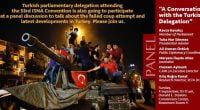
Time for a reality check for ISNA conventioneers – coup attempt in Turkey
Time for a reality check. This weekend many ISNA conventioneers are attending “panels” in which the so-called “Turkish delegation” will continue to attempt to justify the immoral and thoroughly un-Islamic persecution of countless innocent Muslim men and women in Turkey and around the world. While these conventioneers politely applaud the representatives of a regime which is attempting to destroy the lives of many of their fellow Turkish American Muslims right here in the US, here is just one example of what’s happening back in Turkey.

In Turkey, The Man To Blame For Most Everything(!) Is A U.S.-Based Cleric
It isn’t just last month’s attempted coup that the Gulen movement is being blamed for! Everything from suicide bomb attacks to past mine disasters are being laid at the cleric’s doorstep. Just to name a few: last November’s Turkish shootdown of a Russian fighter jet, an explosion at a coal mine in Soma led to an underground fire that killed 301 people in 2014, a horrific suicide bombing at a wedding in Gaziantep killed dozens in August and even killing of Turkish-Armenian journalist Hrant Dink in 2007.


















